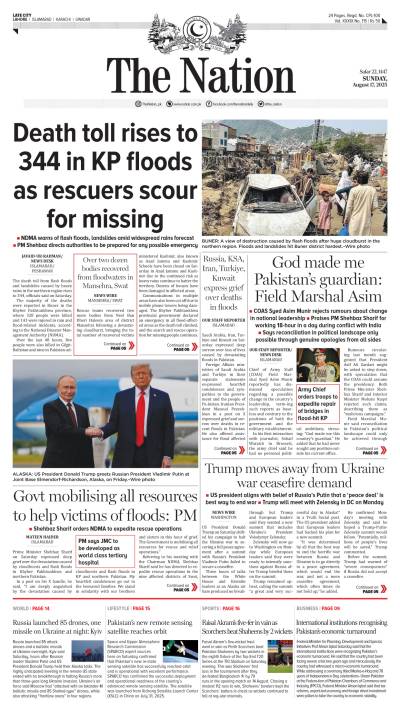ISLAMABAD - Chairman Senate Foreign Affairs Committee Senator Mushahid Hussain Sayed has said that Pakistan stands to benefit from China’s expected strategic deal with Iran and India’s exit from Chabahar projects.
Chairing a webinar on ‘China’s Expanding Investments in Iran and Pakistan: Prospects of Trilateral Cooperation’ which was hosted by Islamabad Policy Institute here on Wednesday, Senator Mushahid said, “China’s entry into Iran with strategic partnership and Indian exit from Chahbahar will help secure our Western borders and strengthen China Pakistan Economic Corridor.”
The webinar was held to study the potential impact of the 25-year economic and security pact between China and Iran, whose 18-page draft was leaked earlier this month in media. A final agreement is expected to be signed by the two countries in March next year. Chinese and Iranian experts also participated in the webinar.
Mushahid said development would have “far-reaching” impact and China could be a bridge between Pakistan and Iran in terms of promoting their cooperation.
He noted that a major benefit of the development was that the possible threat to Gwadar from Indian presence in Chabahar would no longer be tenable.
He said Pakistan and Iran enjoyed “strategic confluence” of their interests – peaceful and secure borders without each other’s territory being used by non-state actors to destabilize either neighbour; regional economic and trade connectivity via BRI/CPEC; cultural connectivity through the common heritage of religion, history; durable peace and stability in Afghanistan; opposing hegemonism, sectarianism, terrorism and extremism; and rejecting a ‘New Cold War’ in the region.
Iranian envoy Sayyed Mohammad Ali Hosseini, in an OP-ED for IPI’s website, whose excerpts were read out at the webinar, said the comprehensive document, which was still being finalized, would provide a framework for “long-term and strategic cooperation in all political and economic fields and in an equal and fair approach.”
The ambassador said iran was ready to extend its cooperation with China to other friendly countries in the region in a regional mechanism.
Senior Fellow at the Center for West Asian and African Studies, Shanghai Institutes for International Studies, Dr Jin Liangxiang, while speaking at the webinar, said that China-Iran deal could benefit all three countries – China, Iran and Pakistan through energy cooperation, construction of pipelines for transporting Iranian oil and gas to China, and improved market access.
He called for building trilateral mechanisms for promoting the prospects of cooperation. He also warned of challenges in this cooperation including trust-building between the three countries and possible sabotage by a “third party”.
Prof Dr Foad Izadi of University of Tehran said that progress towards a strategic cooperation pact between China and Iran presented an opportunity for trilateral cooperation between the three countries, which had common concerns and common goals. He said he was foreseeing a trans-Himalayan pipeline from Iran to Western China through Pakistan. He said the arrangement was logical because China would get secure and reasonably priced energy supply for decades, Pakistan could earn transit fees, and Iran would get an alternate route to deal with American maximum pressure policy. “Iran cannot find better partners than China and Pakistan,” he added.
Executive Director IPI Prof Sajjad Bokhari said China-Iran agreement, once implemented, could alter the regional landscape in which there would be opportunities for all stakeholders in the neighbourhood – though extra-regional actors may lose space to act here. He said the Pakistan government needed to prepare well to benefit from this opportunity.







